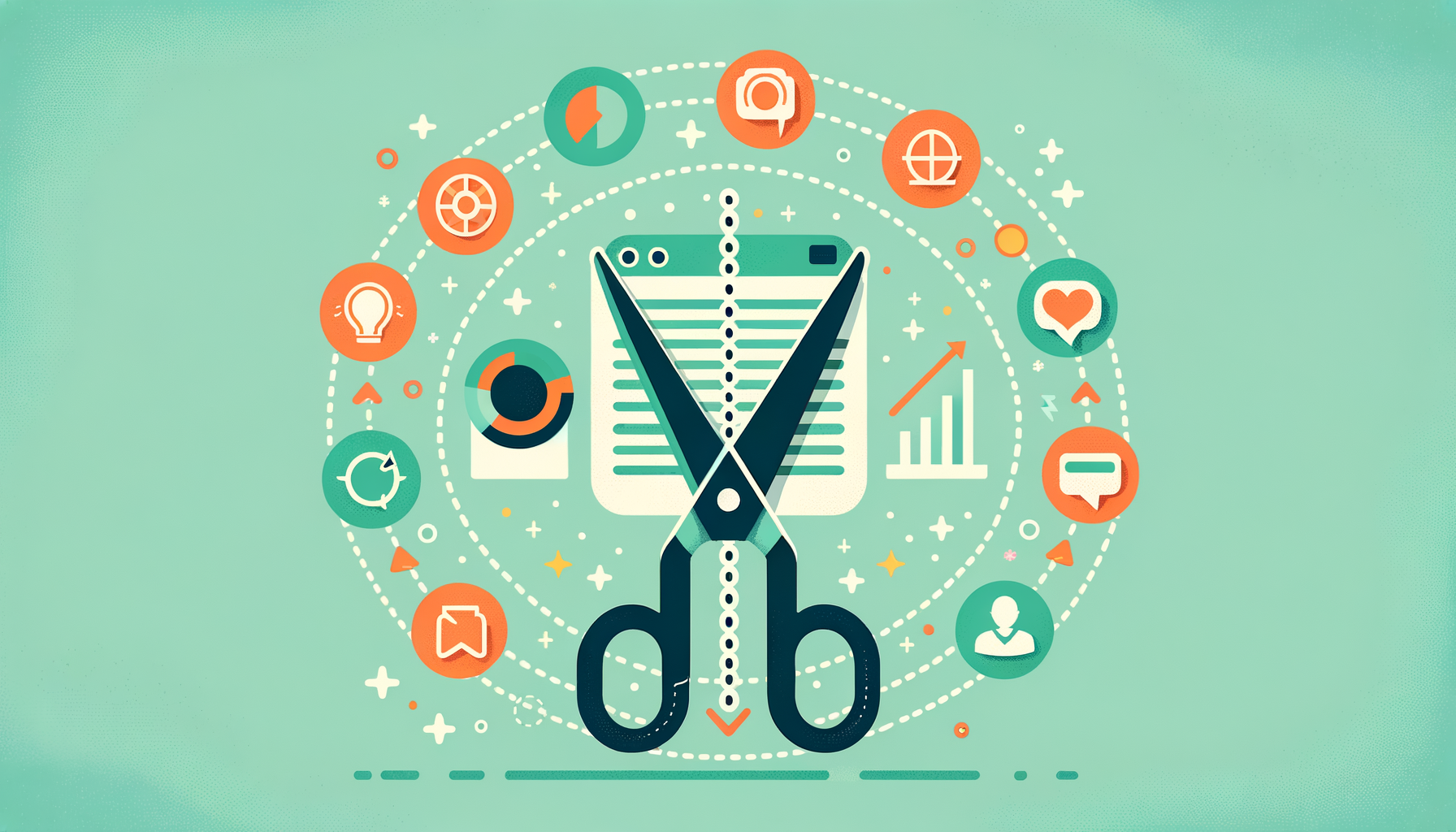What does it mean to be a woman in the United States today — and to succeed in business? This blog is not about how women can measure up to men in business, but how women have broken all odds, and fought for what is necessary and important for equal rights in the workplace.
American film actor and former publicist, Ava DuVernay, once said “If your dream only includes you, it’s too small.” Throughout history, you see where women have paved the way for those to come. From Ruth Bater Ginsberg to Barbara Corcoran, we’ll take a look at how women continue to break the glass ceiling.
First, the Bad News
Equal opportunities in the U.S. have a long, rocky history. The term “glass ceiling” was coined to describe the invisible barrier built by limiting stereotypes that prevent women from rising above a certain point in a hierarchy. In business, the term is a critical look at how women progress up the corporate ladder compared to men.
Despite changes in workplace policy and more recognition, the World Economic Forum reports that the gender gap will take another 132 years to close globally, but may take only half that in North America.
Here’s more insight into where we are today.
More Degrees, Less Representation
There is a growing gap between men and women in finishing higher education degrees. Pew Research found that not only are women 2% more likely to enroll in college than men, but they are also 10% more likely to graduate with a Bachelor’s degree.
However, after college, women in America are less likely to hold CEO positions. A global study of women’s roles in business found that only 5% of available CEO roles are held by women. This study found that many women may hold positions on the board of directors or in C-suites, but the highest management position of CEO is reserved for men.
While this may be a leap from the stay-at-home-wife aesthetic of the 1950s, consider what image comes to mind when you think of “business executive.” On Adobe Stock images, mostly white men in suits come up above the fold.

Feeling stunned that these findings are still relevant today?
With anti-discrimination policies across every job posting, and decades of proof that women are incredibly capable and reliable in management roles, why do these statistics tell a different story? Some would respond that it’s due to “unconscious bias.”
What is Unconscious Bias?
One answer to the continued biases in the workplace revolves around unconscious bias. This isn’t like racism or sexism, which are conscious decisions to feel and act negatively against someone for their particular skin color or sex. Unconscious bias means that a person has biases they may not be aware of that frame certain people in an unfair way.
Think this is too simple of an answer? The London School of Economics (LSE) conducted research on the subject to find that although companies are not overtly biased — what LSE called first-generation bias — they may be experiencing second-generation bias, or the learned stereotypes from the previous generation.
The study highlighted 4 disadvantages that women must overcome as they reach for C-suite management roles:
- Lack of representation and guidance.
- Some career paths are still considered gendered work, like architecture or computer engineering.
- Fewer advocates and recommendations for women seeking the same role as men.
- They must walk the line between being likably feminine and authoritatively masculine.
What many of these research articles point out is that unconscious bias can be unlearned with awareness, training and policy building. Furthermore, there should be an appointed team that ensures these policies are maintained.
Minority Groups in the Workplace
I would be remiss if I did not mention people of color and the LGBTQ+ community in the workplace as well. Where women in general are fighting a battle before they even step foot inside an office building, minority groups face even higher walls.
With that being said, 1 in 4 people of color experience discrimination at work according to Gallup. However, companies with more diverse workforces — women, people of color and members of the LGBTQ+ community — are more profitable and retention rates are higher, notes a report by McKinsey. Even with statistical evidence to support greater diversity in business, these biases are long from resolved.
But Still, I Rise
Despite all of these barriers, women of all races and ethnicities around the world continue to push the stereotypes and boundaries of what it means to be a woman in business. Even with only 83.1% or less in wages in their pockets compared to men, still these women use everything they have to get ahead.
Here are the inspiring women in business today and their stories.
Subscribe to
The Content Marketer
Get weekly insights, advice and opinions about all things digital marketing.
Thank you for subscribing to The Content Marketer!
Now, the Inspiration
With the state of things in mind, we can better appreciate and understand the journey women in business have made. Some of the most successful entrepreneurs and business owners now lead massive enterprises or launched awe-inspiring companies.
Let’s take a look at 10 women entrepreneurs that are sure to motivate you to brush up on your resume, and take a look at your goals of starting a new women-owned business.
1. Indra Nooyi
Net worth: $320 million
Indra was born in India, graduated from Yale with an MBA and became America’s first woman CEO in 2006 for PepsiCo. After 24 years with the company, she left with a substantial stock in hand and joined the board at Amazon in 2019.
2. Virginia Rometty
Net worth: $30 Million
Virginia (also known as Ginni) graduated from Northwestern University in 1979 with a Bachelor’s degree in computer science and electrical engineering. After graduation, she began working at the General Motors Institute for 2 years where she then jumped over to IBM as a system engineer.
By 1991 she was on IBM’s Consulting Group and was soon promoted to Global Strategy and Marketing. Between 2006 and 2009 Virginia was on the board of directors for AIG and Northwestern University as well. By 2012 she was appointed CEO of IBM Group.
3. Rihanna (Robyn Rihanna Fenty)
Net worth: $1.7 billion
Although she got her start as an entertainer, with top songs like Umbrella and Rude Boy, her wealth doesn’t come from the stage.
When she launched her beauty line, Fenty Beauty, in 2017, she quickly joined the ranks as a billionaire and is the second wealthiest woman entertainer next to Oprah Winfrey. Fenty Beauty is worth $1.4 billion today. While she owns 50% of the beauty line, she also launched a lingerie business called Savage x Fenty, worth $270 million.
Both brands aim to be inclusive of all skin tones, gender identities and body sizes. She is the most successful woman entrepreneur to launch her brand on social media.
4. Oprah Winfrey
Net worth: $2.5 billion
Covering everything Oprah has done in her lifetime so far would take an article all on its own. She’s a self-made successful business woman who was born into poverty and worked her way out to where she is now. While in college, at age 19, she got her first job in television as a reporter. She transferred over to daytime television in 1976, to help People Are Talking rocket from the bottom of the charts to the top.
In 1984 she finally landed her own talk show called AM Chicago, which was later renamed The Oprah Winfrey Show in 1986.
Today she is known as an actress, writer, producer, talk show host and philanthropist. Oprah also founded and is CEO of Harpo Productions, a multimedia production company, which operates O, the Oprah magazine. She has acquired many accolades and honors dedicated to both her screen time and ambitions, as well as her philanthropic endeavors.
5. Arianna Huffington
Net worth: $100 million
Born in Greece, Arianna Stassinopoulos Huffington started The Huffington Post and runs Thrive Global. She has written 15 books and is on the Time’s and Forbes’ most influential people list. Her books focus on creating a life of wealth and peace, many of which have become international best sellers.
In her book, Thrive: The Third Metric to Redefining Success and Creating a Life of Well-Being, Wisdom, and Wonder, she talks about what it means to succeed in the modern world — without burning out or putting our health at risk.
6. Kylie Jenner
Net worth: $600 million
Founder of Kylie Cosmetics, Kylie Jenner joined the Forbes’ Self-Made Woman list in 2022. She launched the business in 2015 by using the $250,000 earned from her modeling career. In 2020, she sold 51% of the cosmetics brand for $600 million. She still owns 44% of the company.
7. Sara Blakely
Net worth: $1.1 billion
Sara Blakely is the founder and owner of the shapewear brand Spanx. Spanx sells undergarments, leggings, maternity clothing and swimsuits in over 50 countries. In October of 2021, Blackstone valued the company at $1.2 billion and bought a majority stake. Sara was one of Forbes 2012 youngest self-made billionaires.
8. Falguni Nayar
Net worth: $2.2 billion
Falguni Nayar is the founder and CEO of Nykaa, a beauty and lifestyle retailing company valued at $4.91 billion. The company sells nearly 5,000 brands online and through over 500 stores. She is India’s richest and most successful woman.
9. Gail Boudreaux
Estimated net worth: $48.2 million
Gail started off as an All-American woman athlete playing on the Dartmouth College basketball team and was honored by the NCAA for her ability. Today, she is the president and CEO of Elevance Health, one of the nation’s largest health insurers. The company offers $53 million in grants to help address critical health concerns facing Americans.
She was formerly the CEO of United Healthcare and led the largest division of UnitedHealth Group, earning the company more than $120 billion, and managed over 60,000 employees and 45 million consumers.
10. Mary Barra
Net worth: $173 Million dollars
Mary has been the CEO of General Motors (GM) since 2014 and is the first woman to lead one of the big 3 automakers in the U.S. She has invested heavily in electric vehicles, self-driving automation and a ride share business called Maven.
Since starting at GM, she has improved the air quality in the factories and became one of two companies in the country with no gender pay gap.
What Does Success Look Like to You?
Many of the women selected on this list either founded a successful company or worked through the ranks and were promoted to a CEO position.
What it means to be a successful businesswoman may differ from person to person. Perhaps reaching that coveted CEO position is important to you. For others, success in business may symbolize post-career goals — such as turning a significant profit, selling your company and retiring – or even teaching and guiding the next generation.
Success in business can take many forms.
Making a Difference for Women in Business
Developing an enterprise that is future-proofed against any economic hardship takes a lot of consideration, however. Nationally, the gender pay gap will take over a century to achieve, but Mary Barra was able to close the gap at GM. It will require a focused mind to build a company that not only reaches profit goals, but also can meet the needs of its employees with sustainable growth.
What it Takes to Succeed in Business
While we can’t lay out what it means to be successful in your own life, here are some tips on the qualities you could improve on if entrepreneurship is your goal.
1. A Willingness to Learn
To become a savvy businesswoman, you need to observe other people in your industry and realize that this pursuit is a lifelong process. Keep your eyes out for where there may be a gap in the industry and how you can make a difference.
2. Communication
Positioning yourself as a leader means communicating with team members about wins and roadblocks along the path of launching a project. Leading with empathy will be your biggest strength when climbing the ranks in business.
3. Strong Support System
As you navigate your way through business, it’s important to continue to lift up others around you. Social-emotional learning is an essential part of creating a supportive team environment that focuses on the community rather than the individual. When each person is held accountable and succeeding, the entire business thrives as well.
4. Integrity
The key point to making it in any industry is to build trust with others in your field. Leading with empathy is one thing, but having incredible integrity can move mountains. In the age of increased visibility and accountability, it’s important to set an ethical foundation for your career with a history of treating people fairly and leading with others in mind.
With these insights and the willingness to strive for a better tomorrow, we hope you’ve gleaned some inspiration to improve the state of entrepreneurship for women.





